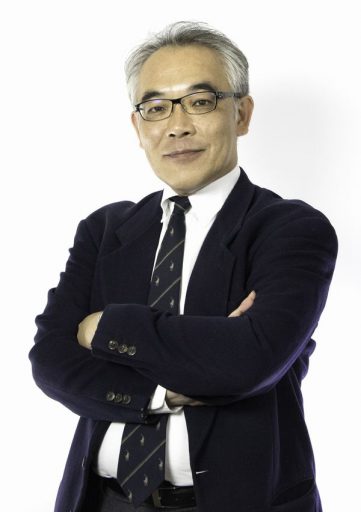A Message from the Dean
Welcome to the website of the Faculty of Global and Science Studies.
The Faculty of Global and Science Studies, founded in 2015, is the youngest of the nine faculties of Yamaguchi University. Not only is it the youngest faculty, but it also has significantly different characteristics from other faculties. One point is that this faculty is designed using a student-centered perspective.
Most faculties of national universities, not just Yamaguchi University, are designed based on specific specialized disciplines, for example, “Faculty of Economics for studying economics” and “Faculty of medicine for studying medicine”. Faculties based on these specialized disciplines are indisputably important. Modern society is known as a knowledge-based society, requiring a large number of people with advanced knowledge and skills in various specialized fields.
On the other hand, in an extremely complex and diversified modern society (one manifestation of which is “globalization”) problems that are difficult to solve with knowledge of one specific specialized field are presenting themselves one after another. To give an easy-to-understand example, since last year, COVID-19 has become an extremely serious globalized problem. This is a medical problem, an economic problem, a political problem, and an international affairs problem. It also affects how each of us should live our daily lives. Obviously, the medical profession with its own framework cannot solve related political and economic problems; neither can politics alone solve medical problems.
While respecting the importance of each specialized field, the Faculty of Global and Science Studies considers the existence of multiple barriers lurking throughout modern society as a problem and attempts to overcome those barriers. For this analogy, I used the slightly abstract term “barriers”. Many new students who have just entered university incorporate the dichotomy of “because I am a science student” or “because I am a liberal arts student”. It seems that this confrontational scheme of “science vs. humanities” is internalized as a barrier, which limits one’s own potential. However, if we consider important environmental problems, it is clear that, as in the case of COVID-19, it is not possible to solve them with only scientific research or studies in humanities, because a great variety of issues are intricately intertwined. All social problems are of that nature.
Based on this awareness of the current situation, the Faculty of Global and Science Studies was designed from a student-centered perspective, rather than based on one specific academic field. It was established to diversify and integrate the abilities that students can acquire. What kind of specified abilities students will acquire is posted on the university-wide website in the form of a “diploma policy.” This long official policy document is conveyed in official language, but the essence is “bridging abilities” as well as “integrating abilities”.
Of course, not all disciplines can be exhaustively covered in only four years at university. At the Faculty of Global and Science Studies, students will be required to acquire basic knowledge and skills related to two themes that are particularly important for properly contributing to modern society. In addition, students should strive to acquire new methods to solve problems, creating new value, with increased ability to live a long life after graduation while acquiring their new skills.
One of the two important themes is “globalization”. Many people think of English when they say “globalization.” It is true that English is important for bridging and integrating, and English skills are also emphasized in the education of the Faculty of Global and Science Studies. However, English proficiency is only one of several requirements. I would like students to return to the original meaning of “communication”, as in “sharing with others,” and acquire communication skills in a deeper sense in which English proficiency is only one part. On top of that, in a society where globalization will continue to evolve, globalization will be fundamental in actively living an independent life while respecting the diversity of the cultures, societies, religions, languages, etc. of other individuals. Recognizing these realities will deepen the multifaceted learning of your school days.
The other important theme is science. When we think of the term “science,” the first thing that comes to mind is the natural sciences such as physics, chemistry, and biology. Here, science refers to academics in general, including humanities and social sciences. In addition, while individual academic fields are inevitably subdivided into specialized fields, our faculty’s main purpose is to connect various fields, because, as mentioned above, all problems are intertwined. Understanding the connection is a pillar of the curriculum of the Faculty of Global and Science Studies.
Of course, understanding the connections is not enough. Students also learn about design thinking and intellectual property in order to bridge and integrate between individuals to solve problems, create new value, and disseminate solutions to society.
The abilities-mentioned above, acquired at the Faculty of Global and Science Studies will be the abilities students can use for personal progress in life after graduation, regardless of the field to which students choose to advance. Please take a closer look at other pages of this website. You may grasp a better understanding of part of the skills diversity of the Faculty of Global and Science Studies.
April, 2021
KAWASAKI Masaru, Dean of the Faculty of Global and Science Studies
